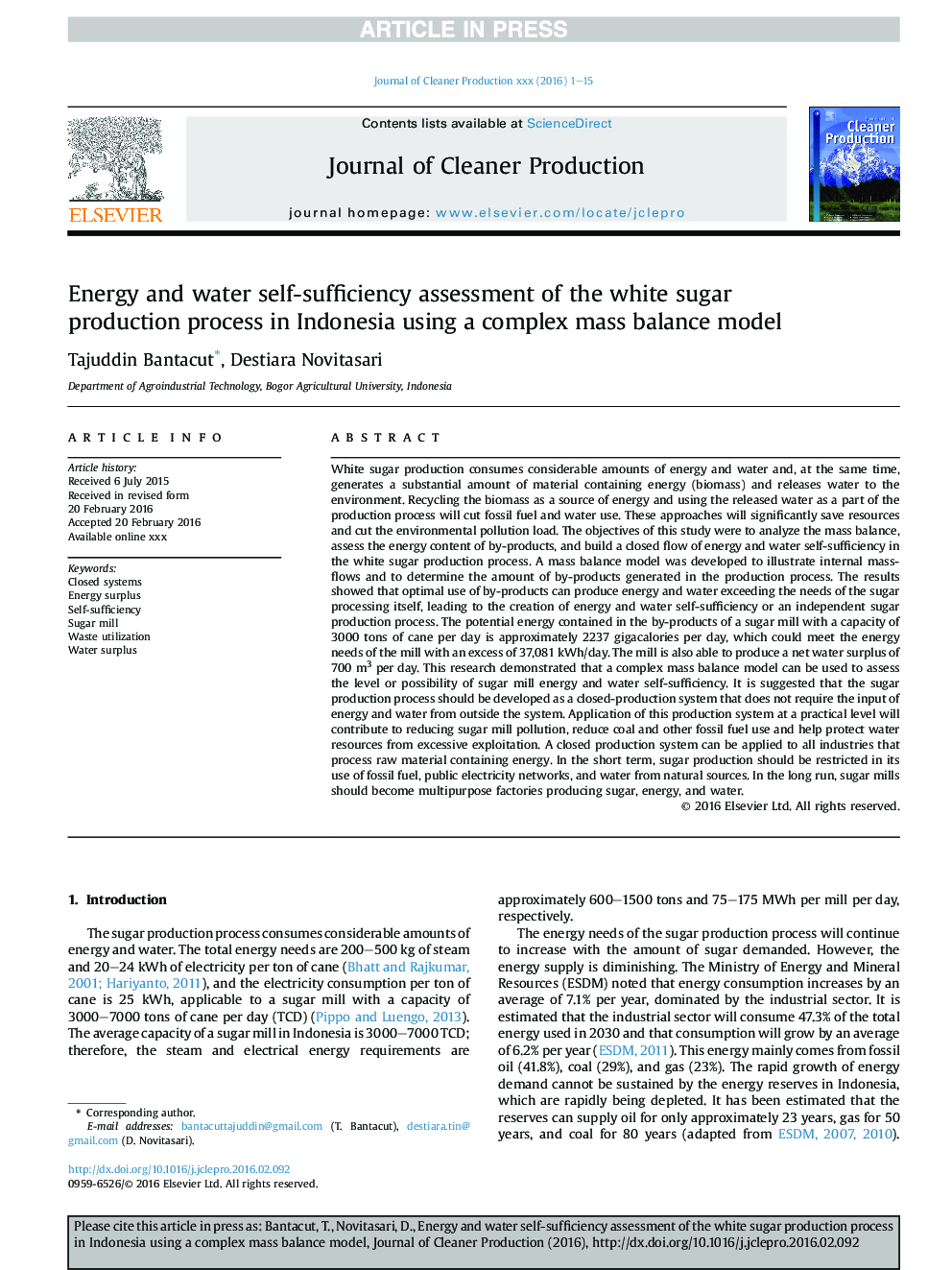| کد مقاله | کد نشریه | سال انتشار | مقاله انگلیسی | نسخه تمام متن |
|---|---|---|---|---|
| 8102143 | 1522123 | 2016 | 15 صفحه PDF | دانلود رایگان |
عنوان انگلیسی مقاله ISI
Energy and water self-sufficiency assessment of the white sugar production process in Indonesia using a complex mass balance model
ترجمه فارسی عنوان
ارزیابی خودکارآمدی انرژی و آب از فرایند تولید شکر سفید در اندونزی با استفاده از یک مدل تعادلی پیچیده توده ای
دانلود مقاله + سفارش ترجمه
دانلود مقاله ISI انگلیسی
رایگان برای ایرانیان
کلمات کلیدی
سیستم های بسته مازاد انرژی، خودمختاری، کارخانه شکر، استفاده از ضایعات، مازاد آب،
موضوعات مرتبط
مهندسی و علوم پایه
مهندسی انرژی
انرژی های تجدید پذیر، توسعه پایدار و محیط زیست
چکیده انگلیسی
White sugar production consumes considerable amounts of energy and water and, at the same time, generates a substantial amount of material containing energy (biomass) and releases water to the environment. Recycling the biomass as a source of energy and using the released water as a part of the production process will cut fossil fuel and water use. These approaches will significantly save resources and cut the environmental pollution load. The objectives of this study were to analyze the mass balance, assess the energy content of by-products, and build a closed flow of energy and water self-sufficiency in the white sugar production process. A mass balance model was developed to illustrate internal mass-flows and to determine the amount of by-products generated in the production process. The results showed that optimal use of by-products can produce energy and water exceeding the needs of the sugar processing itself, leading to the creation of energy and water self-sufficiency or an independent sugar production process. The potential energy contained in the by-products of a sugar mill with a capacity of 3000Â tons of cane per day is approximately 2237Â gigacalories per day, which could meet the energy needs of the mill with an excess of 37,081Â kWh/day. The mill is also able to produce a net water surplus of 700Â m3 per day. This research demonstrated that a complex mass balance model can be used to assess the level or possibility of sugar mill energy and water self-sufficiency. It is suggested that the sugar production process should be developed as a closed-production system that does not require the input of energy and water from outside the system. Application of this production system at a practical level will contribute to reducing sugar mill pollution, reduce coal and other fossil fuel use and help protect water resources from excessive exploitation. A closed production system can be applied to all industries that process raw material containing energy. In the short term, sugar production should be restricted in its use of fossil fuel, public electricity networks, and water from natural sources. In the long run, sugar mills should become multipurpose factories producing sugar, energy, and water.
ناشر
Database: Elsevier - ScienceDirect (ساینس دایرکت)
Journal: Journal of Cleaner Production - Volume 126, 10 July 2016, Pages 478-492
Journal: Journal of Cleaner Production - Volume 126, 10 July 2016, Pages 478-492
نویسندگان
Tajuddin Bantacut, Destiara Novitasari,
